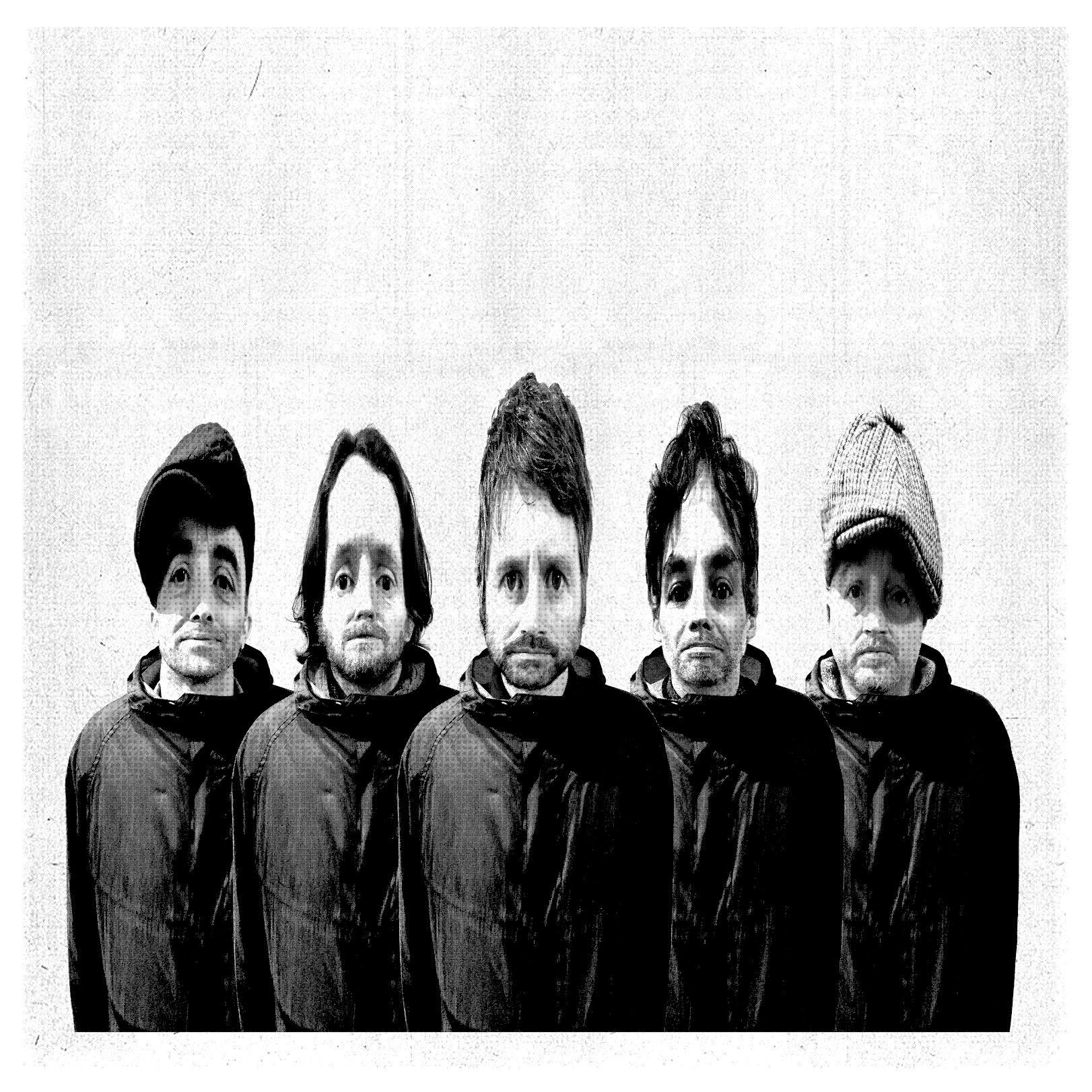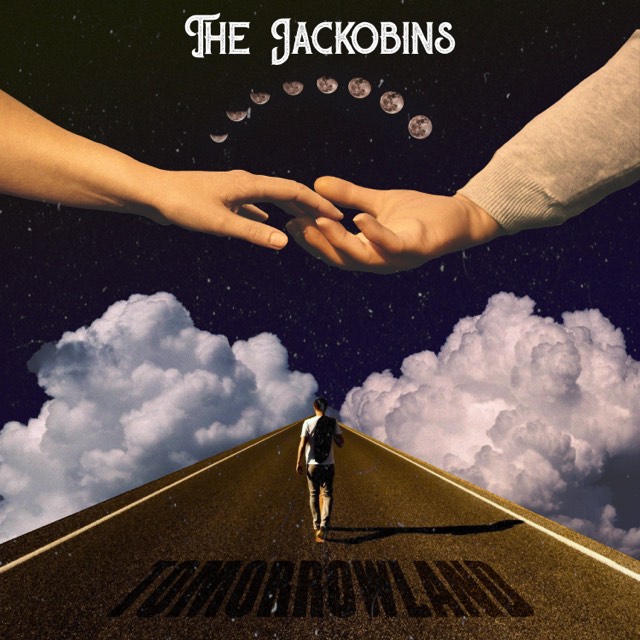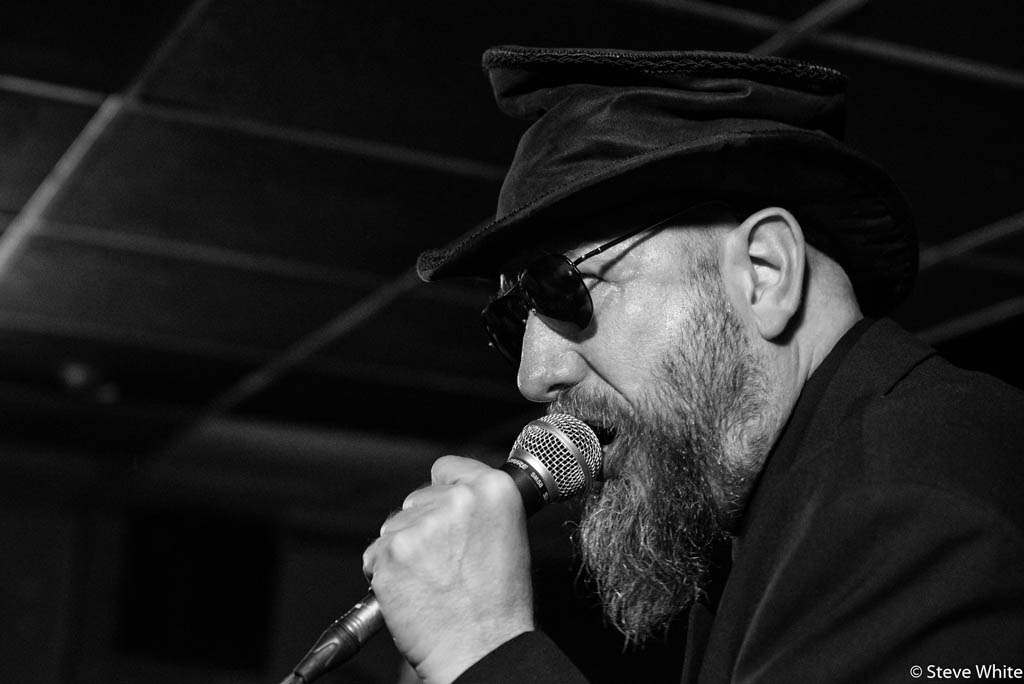
It’s 1999. Cool Britannia isn’t so cool anymore, lukewarm at best. The UK is fast running out of white male indie guitar bands to feed the Britpop machine. Creation Records, Alan McGee’s label notorious for the movement’s worst ridiculousness along with the best bits is months away from its own big sleep. And we won’t even mention TFI Friday.
But it was in June of that year Creation’s Super Furry Animals – Gruff Rhys (lead vocals, guitar), Huw Bunford (lead guitar, vocals), Guto Pryce (bass guitar), Cian Ciaran (keyboards, synthesisers, electronics, vocals) and Dafydd Ieuan (drums, vocals) the band who flourished during Britpop yet stayed some distance apart from it – unleashed third album Guerrilla to the world. It’s a record injecting a sense of optimism into the air with its ambitious and experimental scope and ever present unmistakable SFA humour.
A reissue to coincide with the twenty year anniversary hits the shops this week and is faithful to the original complete with pop ups on the vinyl edition by longtime SFA artist Pete Fowler. There’s added bonus material on CD My Eyes Began To Grow Into Telescopes of unreleased demos, b-sides and other rarities. The album has sleeve notes by both Alan McGee and band biographer Ric Rawlinsoffering insights into the conditions that cultivated Guerrillaand how it further cemented the band’s singular status in rock, indie and pop music.
Guto Pryce and Cian Ciaran from the band talked to me to help explain the story behind the album first hand.
On the face of it, Guerrilla is all over the place, incorporating techno, rock, psychedelia and electronic wizardry. It takes us on a weird but enjoyable ride from the catchy pop of Do Or Die, a gorgeous love letter to The Beach Boys in the form of The Turning Tide, and the simply bonkers Wherever I Lay My Phone (That’s My Home) with its hysterically infectious chorus, the latter a fine example of a what Guto accurately describes as ‘a good beer swilling song, party music.’
The notion of SFA not fitting in the Britpop bracket is correct yet there’s no denying the era created the circumstances in which the record was made. The budget for Guerrilla was very generous allowing the band to decamp from Wales to the luxury of Peter Gabriel’s Real World studios near Bath, a place Guto describes as ‘a bit like a James Bond baddie lair in the countryside.’
Unlimited resources and equipment expertise and engineers on hand, state of the art equipment, instruments, microphones, all in salubrious surroundings plus the decision to self produce, a state imposed by the unavailability of Gorwel Owen responsible for first two albums Fuzzy Logic and Radiator made for a culture shock, albeit an ultimately highly productive one.
The band stayed put for six weeks in ‘as Gruff called It, Fantasy World… the stuff of dreams,’ says Cian.
They packed a lot in with three studios running simultaneously over most of that period. As both men talk, it comes across as a major kid in a sweet shop scenario.
‘There was someone there 24 hours a day working away, experimenting trying things out. We were very productive as a band, we grasped these opportunities. Somebody would feed us while we were recording. It was a luxury. We always treated a record as “this is possibly the last time we’ll be in a studio. We’ve got make the most of it”,’ says Guto.
A
sense of seizing the day. Going mad for it, to coin a phrase?
‘Yeah but always creatively. We didn’t fuck about in the studio. Making music
is our release at the end of the day.’
Describing Guerilla as ‘the closest we got to making our electronic record’, the album is a logical consequence of the hip-hop, techno, Beck and DJ Shadow tracks they were listening to.
‘We bought a sampler when we got signed but didn’t know how to use it on Fuzzy Logic,’ he admits. ‘But on Radiator our second album we started using the sampler a bit more. (By the time of Guerrilla) Cian especially got good at sampling things. But at the same time we were aware that we were a guitar pop band essentially, so we never totally dropped the guitars.
Although we were heavily influenced by 60s music we were also into dance music…. there was incredible drum & bass coming out, it felt like a British scene more relevant to us than the narrow look at what Britain was (through Britpop).’
‘There’s a degree of irony….’cos Britpop was partly the reason we started making the type of music we were. It played a part maybe in the way how we made music because it was something we didn’t want to be a part of,’ says Cian firmly.
‘We were consciously not reacting against it. So to be lumbered in with it…when we went abroad Japan or whatever it was, “how do you feel about being a Britpop band”. Fuck’s sake, trying to shake that…nothing against the music. It was the flag waving, the thing about being superior. Not interested.‘
The music press was very London-centric, recalls Guto. SFA as a band made a conscious decision to operate from Wales and not go down the route of going to London.
‘Ploughing ahead pigheadedly doing out own thing and luckily it was a time when bands from Wales were getting signed and people were listening to bands from Wales after being shunned for years. We were lucky there were a few bands before us that paved the way, like Gorky’s (Zygotic Mynci).’
Guitars might be scaled down on Guerrilla but members tried out each other’s instruments, switching and swapping as they saw fit.
Cian gave steel drums a go. ‘No one was afraid to pick stuff up and try it out. It was encouraged,’ he confirms. ‘Using a football analogy, you wanted to leave it all on the field. You’ve exhausted everything you’ve left the field having given it your all. Certainly no regrets.
I felt it was time to embrace that and push the boundaries which is what we always did, push what we could do in the studio so in that sense it put you at ease, for me. I heard a quote from Gruff in another article saying he felt the pressure to deliver and I almost felt the opposite. I felt it was a time of exploration and experimentation.’
‘If someone felt strong enough about something we’d be behind them. So if it was a traditional song written by Gruff and that was the arrangement that he felt he wanted, we’d go with that,’ says Guto.
‘Or maybe Cian would take the reins and take an idea and come up with some totally different direction. We were very open minded, respect for each other’s ideas. I can never remember any bother in the studio, very easy going no locking horns on how something should sound.’
This is no dust covered record to reflect on for old time’s sake. It sounds remarkably contemporary listening to it afresh. Guto is surprised how ‘out there’ it is in its scope, looking back. ‘I like the fact it’s got a punk rock song right in the middle of a load of synth textures.’
Encountering Guerrilla again in the context of 2019 shows it to be positively prophetic in places. There’s the strap line on the back stating simply, ‘Non violent. Direct action’, the phrase associated with the campaign to preserve the Welsh language. In 2019 the anti-climate change movement Extinction Rebellion champion the very same sentiment. Cian is involved in environmental campaigns in Wales, supporting legal action this summer against the plan to dump 300, 000 tonnes of mud from outside a nuclear reactor in Somerset in Welsh waters.
‘I’d forgotten about that,’ he says of the phrase, ‘(but it’s) unfortunately true for the foreseeable future. It’s a weird world and I know every generation’ll say it, at present it’s quite scary, what we’re facing from world leaders. Madness. The type of language, hate, politics, climate change…when you’ve got kids, what they will face at my age. It’s not a very nice prospect.’
Back in 1999 when Guerrilla was made, everyday use of mobile phones was in its green screen infancy. The song Wherever I Lay My Phone (That’s My Home) chimes with current times in a different way they couldn’t have predicted ‘Status symbol disease says…I’ve got a mobile phone…’ as the song famously goes.
‘We took the melody from the Nokia theme and changed it a bit so we didn’t get sued,’ laughs Guto
‘We started touring quite a bit in Japan around that time, and Japan was very futuristic in the late 90s. We had one mobile phone between five of us! It was pretty exciting. The internet wasn’t really…you’re talking about dial up then!’
So does Guerilla feel 20 years old?
‘No. When I was growing up and someone was talking about seeing The Beatles or someone that felt a long time ago. In 1985 that was 20 years ago.’
You are lots of people’s Beatles.
‘Very generous, over generous. But I guess we’re part of people’s growing up their good, fun years.’
‘When we were very active as a band we always wanted to look ahead and didn’t want to look behind us. We kept on wanting to make new records. (But) it’s just band at the end of the day. You can’t take it too seriously. If people enjoy it then it takes them back to a place of enjoyment in their life, that’s not a bad thing.’
Guerrilla and My Eyes Began To Grow Into Telescopes are out now.
Interview by Cath Holland


